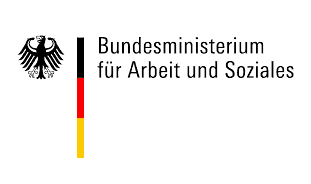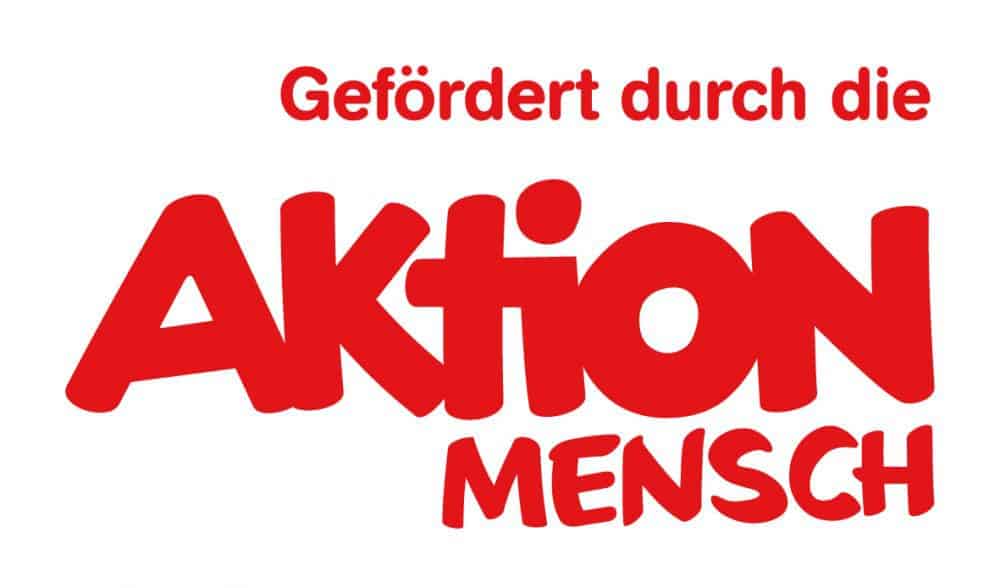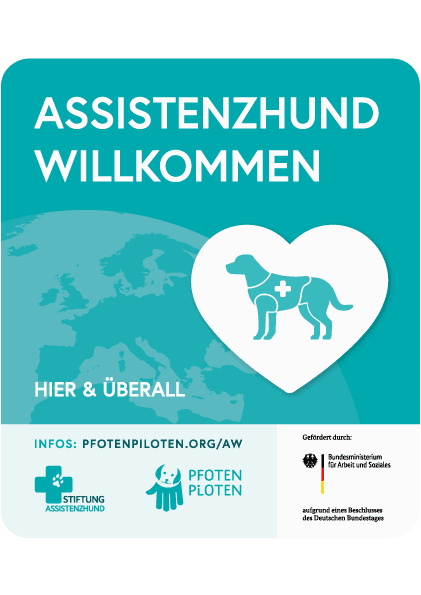Being there as a matter of course – even with an assistance dog – is a concern of the city of Karlsruhe. By joining the “assistance dog friendly municipality” campaign, it promotes social participation and thus the independence of people with disabilities
– Ulrike Wernert, Disability Officer of the City of Karlsruhe
When you leave Karlsruhe’s main railway station, you can still understand the Margrave of Baden-Durlach, Karl Wilhelm , that according to legend he came to rest right here and fell asleep in the forest.
What we don’t know yet when we arrive: This feeling of tranquillity will stay with us for the whole day. Perhaps there is a very simple reason. Perhaps it is because this city, with its gluttony for art and culture, plans with its citizens and for its citizens.
Exhausted and overstimulated by the train journey, which is always an involuntary adventure with assistance dogs, we take a breath. Vis a vis is the zoo, a green oasis in the city. The entrance is separated only by some tram tracks and a café that can’t quite decide whether it feels it belongs to the cautious bustle of the station forecourt or rather to the zoo’s gardens.

By the way, Karlsruhe Zoo – here we leave the chronology of events – is very assistance dog friendly. Mr Deible took time for us and guided us through the beautiful grounds. Educational work was twice as much fun in such nice company. This is not the first time we have heard of institutions having to deal with disputes with other dog owners when granting access rights to assistance dogs. Mr Deible explains to us that general admission with dogs is simply not possible and shows us free-ranging water birds that have conquered the entire zoo as their habitat. However, this is probably not the only reason why only assistance dogs are allowed on the facility. Some animals actually feel disturbed by our assistance dogs, despite the distance. The zoo’s decision is understandable. When we meet a day-care group at the penguins and the educator explains to the little ones absolutely perfectly what assistance dogs are and why you shouldn’t disturb them, our visit to the zoo is perfect.
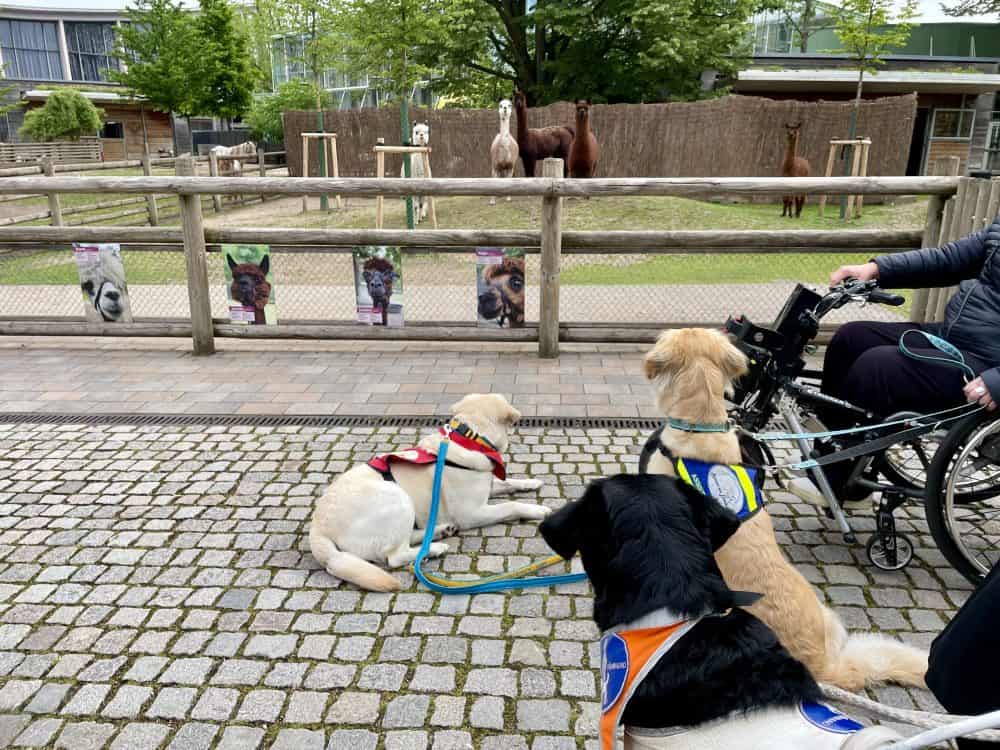
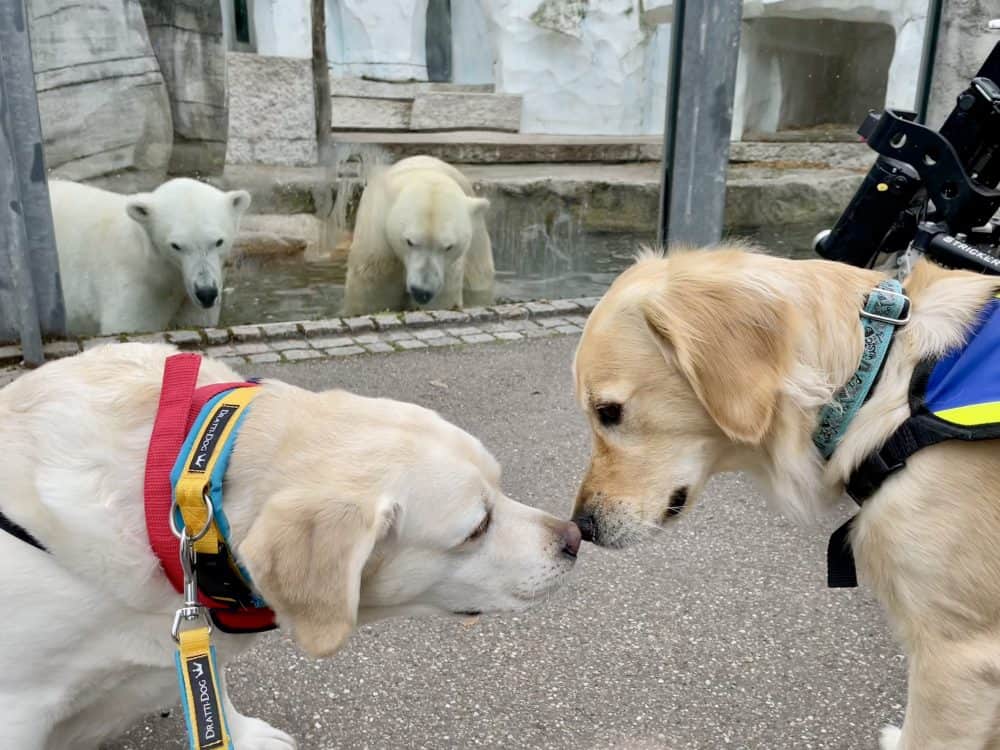
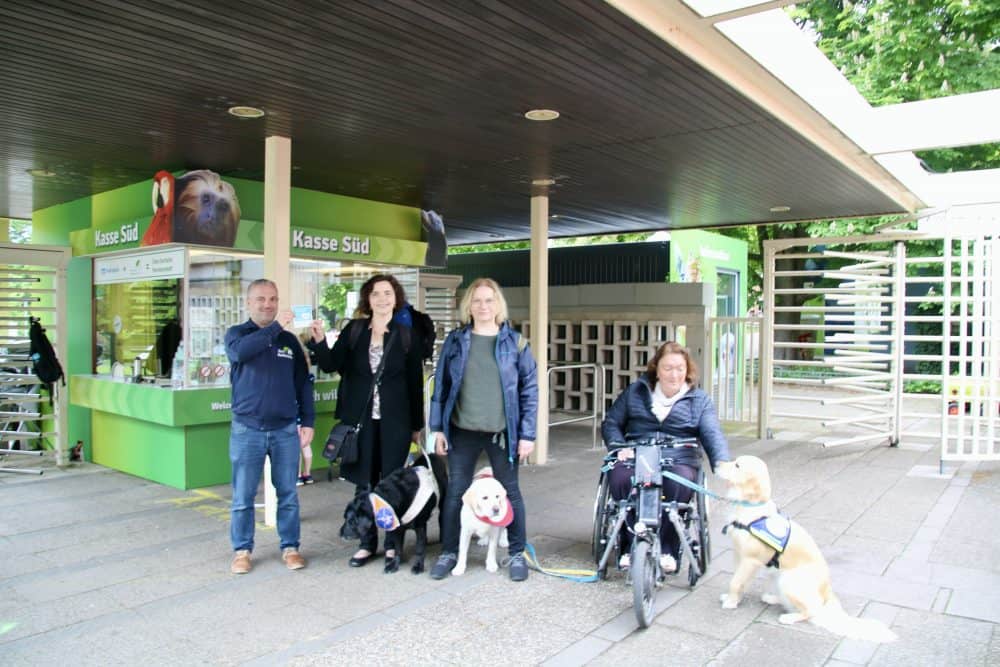
It is unusual that we are reporting on a metro here. But it was the one we liked. Strictly speaking, Karlsruhe has the shortest underground in Germany. It has good guidance systems, sufficiently large lifts, clean air, wide, well-lit platforms and is so clean that it suits us fine when Daika, Edda and Mascha cool off belly-down on the tiles. By the way, Edda is the charming assistance dog of Ulrike Wernert, Karlsruhe’s Commissioner for the Disabled. She accompanies us through these days. When we get in with our assistance dogs, something happens that moves and amazes us Berliners. We are immediately offered places and help. Just like that. It will not be the last time that people in Karlsruhe meet us like this.
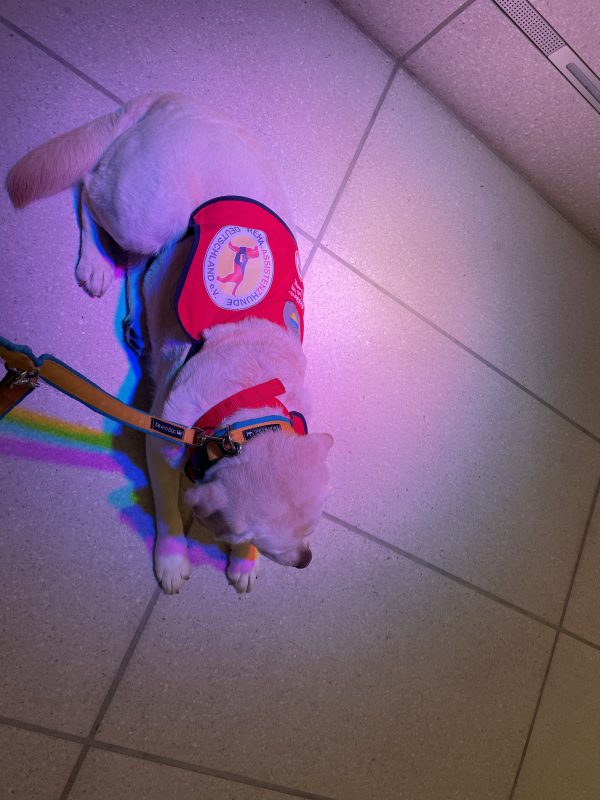
If you’re in Karlsruhe, you have to go to the castle, of course. It is the heart of the city laid out as a fan around the castle. The Baden State Museum is located here. We are expected by Mrs Radtke. Assistance dogs have long been welcome guests at the castle. A matter of course, which in view of the treasures tells of a lot of trust. And of course, once again, we have our ears everywhere. Material in simple language is being developed, Ms Wernert is a natural contact person for this. Barriers have to be recognised. Dismantling them is something that has to be lived; it is difficult to prescribe. Here it is lived.

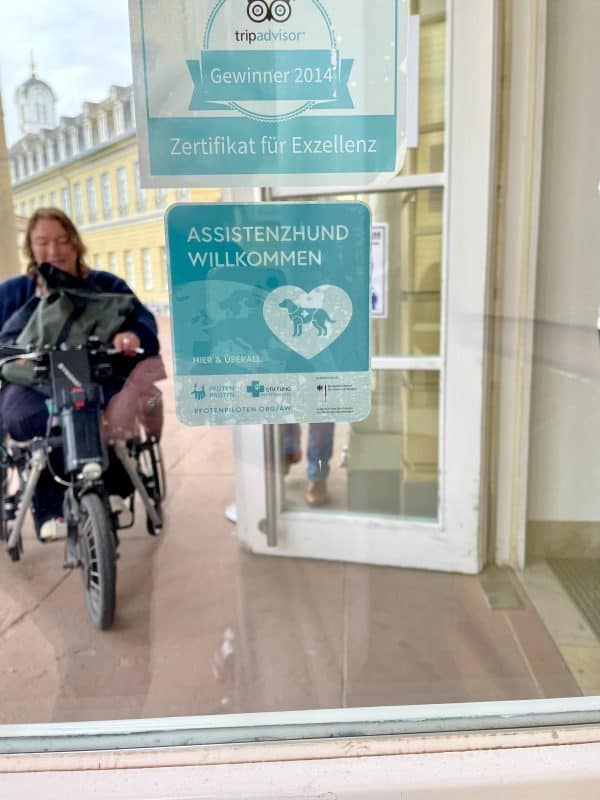
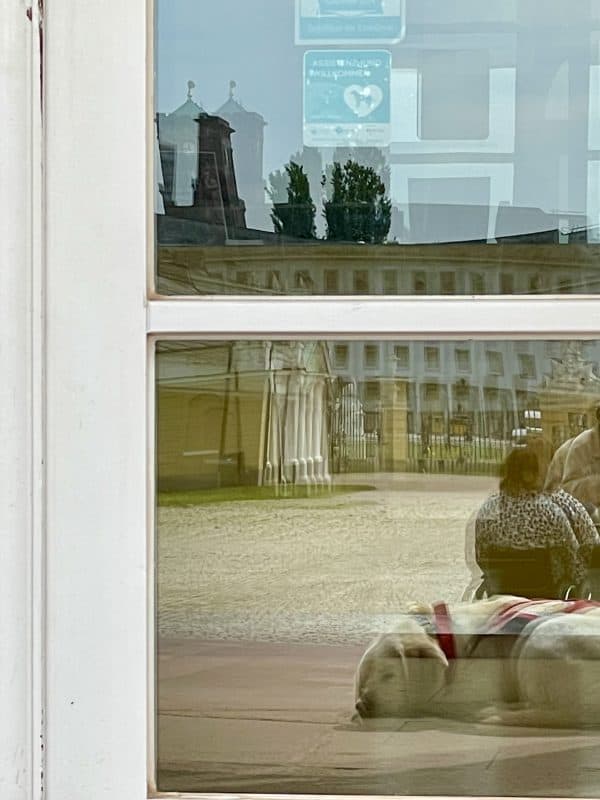
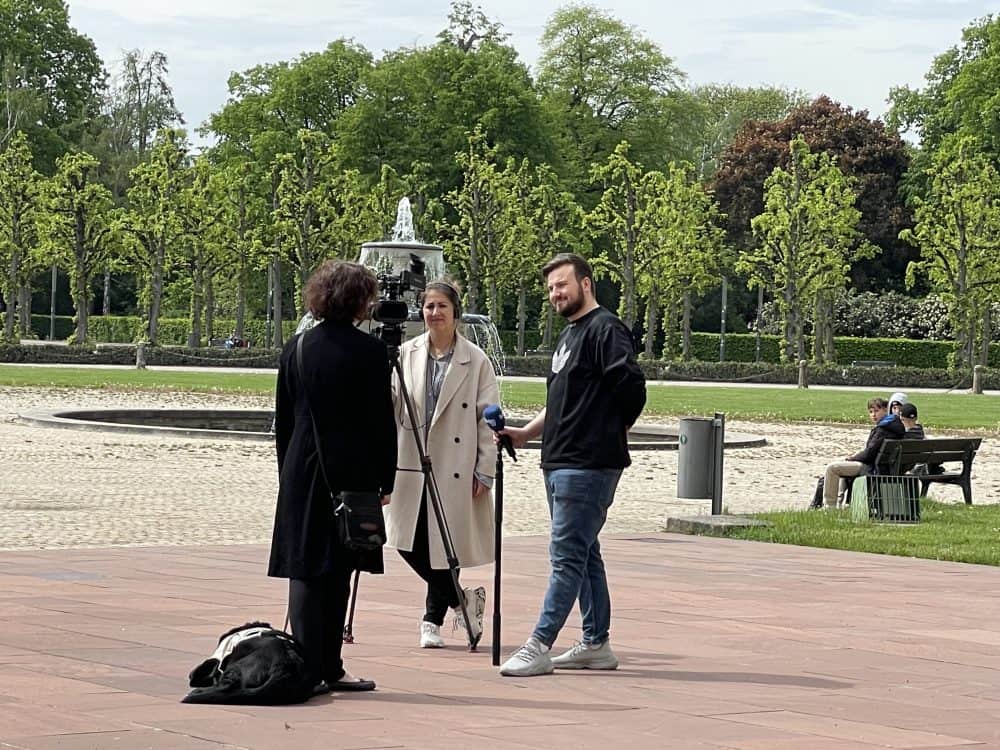
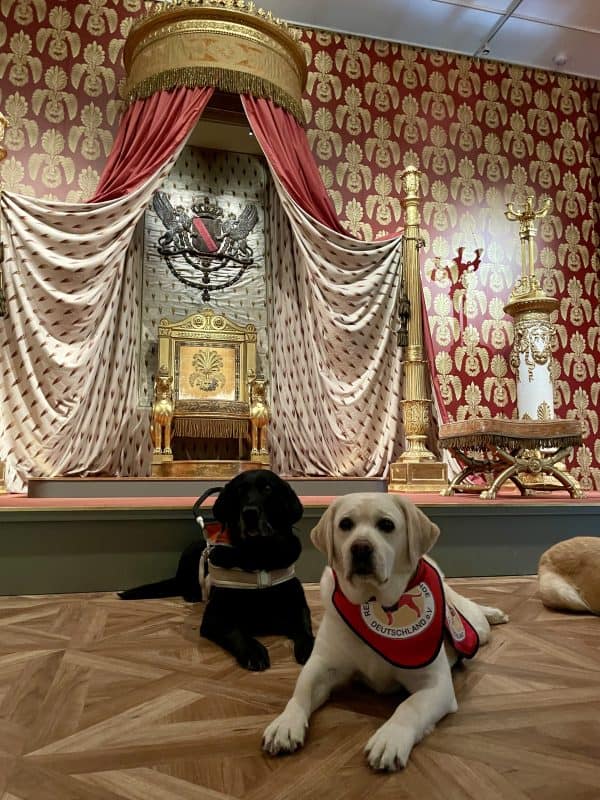
The Karlsburg in the Durlach district invites you to a reading in its festival hall. Stefanie Ritzmann will read from her book “Weglaufen? Don’t go!” Karlsburg also becomes officially assistance dog friendly that evening. What follows is the only downer of the Karlsruhe Days. Daika and Hannah need a taxi, announce the assistance dog when ordering. The taxi driver arrives, reacts to Daika’s existence with an “iiih!” and simply leaves the two standing. It goes without saying that this is not only terribly rude but also forbidden.
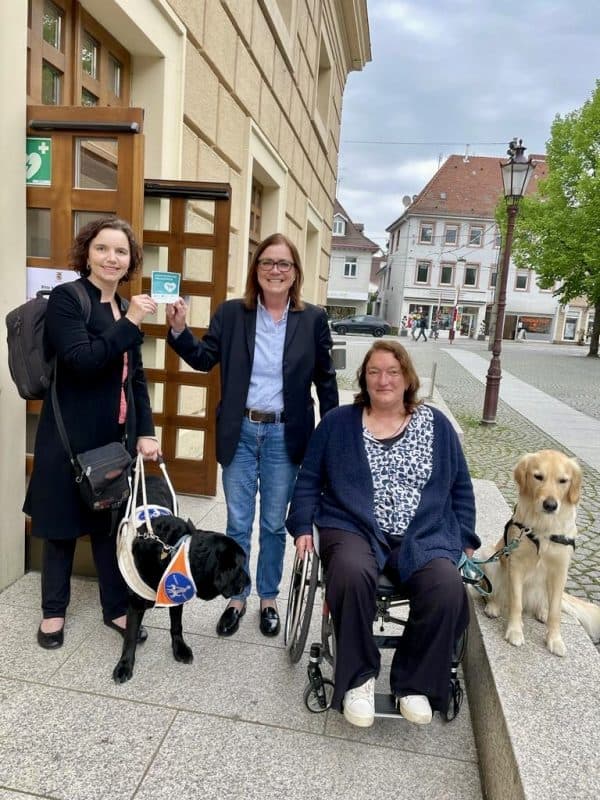
Karlsruhe has an incredible amount to offer culturally for its more than 300,000 inhabitants. We are real theatre fans and are pleased that more and more venues understand accessibility as more than just providing a few seats for wheelchair users. The Badisches Staatstheater is one of the houses that let assistance dogs in as a matter of course even before our visit. The spring sun heats up the good mood properly as we leave the steps to the left and take the comfortable ramp with the dogs. Awaiting us is an interested panel with Johannes Graf-Hauber (Managing Director), Manuell Müller (Visitor Service) and Ruzica Novak (Ticket Service), among others. We welcome questions, explain how to reliably recognise an assistance dog, dispel fears and explain, not for the first time, that the house rules naturally apply to assistance dog teams whose behaviour is disruptive. At the latest in the foyer, we regret that our resources do not allow us to attend an event. How we would have loved to have been able to enjoy art here. Open people seem so inviting. As the evening sun greets us on our way out and Daika and Masha make their way to our hotel, we resolve that we will definitely be back.


On the occasion of the European Day of Protest for the Equality of People with Disabilities, a press conference will be held in Karlsruhe City Hall. Ulrike Wernert, municipal commissioner for people with disabilities, and Mayor Dr. Frank Mentrup, officially declare the campaign’s entry into “Assistance Dog Welcome”. Dr Mentrup sees it as a necessity that people with disabilities encounter conditions that allow them a lot of independence. Dr Hannah Reuter from the Pfotenpiloten explains once again how important it is that the municipal starting signal for access is given, so that the private sector and the medical sector are also won over via the positive example and education in the reporting. There is a keen interest to give a strong impetus to the assistance dog-human teams in the region. In the press conference, we hear how much citizen participation was involved in implementing the new guidance system for the blind in Karlsruhe’s city centre, how compromises were negotiated and solutions found together. We are sure that assistance dog-human teams in Karlsruhe will hardly encounter any more barriers because inclusion has arrived in this Baden city. We feel this in the town hall, in the castle, in the underground, in the restaurant, in the theatre, in the zoo. As we say goodbye to Edda and Ulrike Wernert, we regret the long distance.
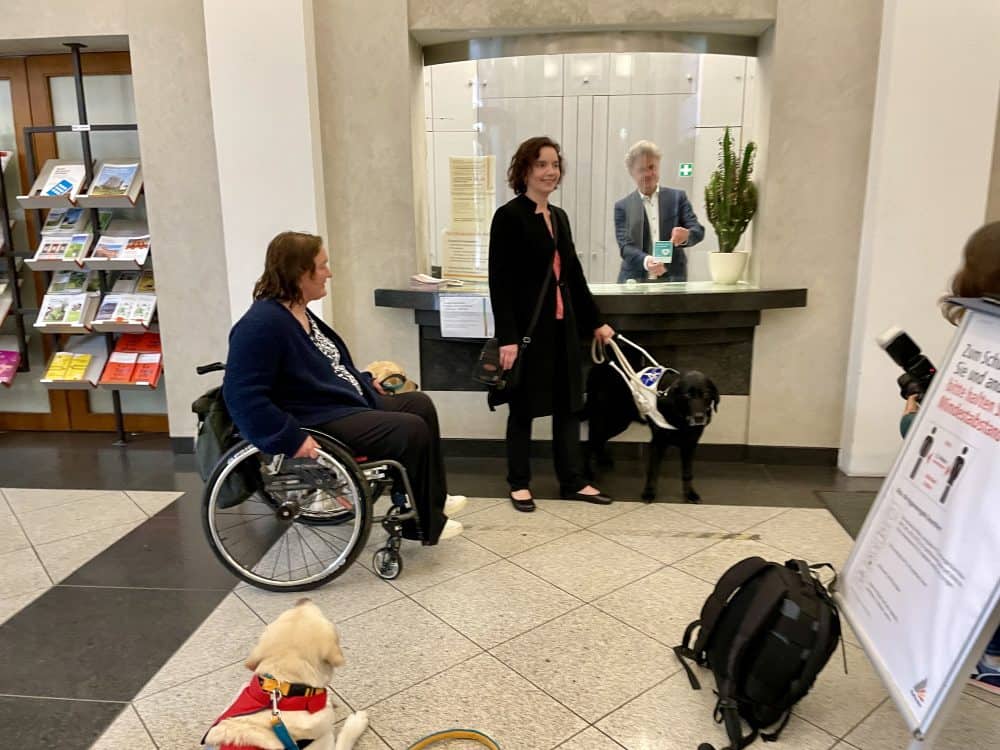
Karlsruhe inspired us and sends us back to Berlin with the serenity that it can be quite easy to simply belong.
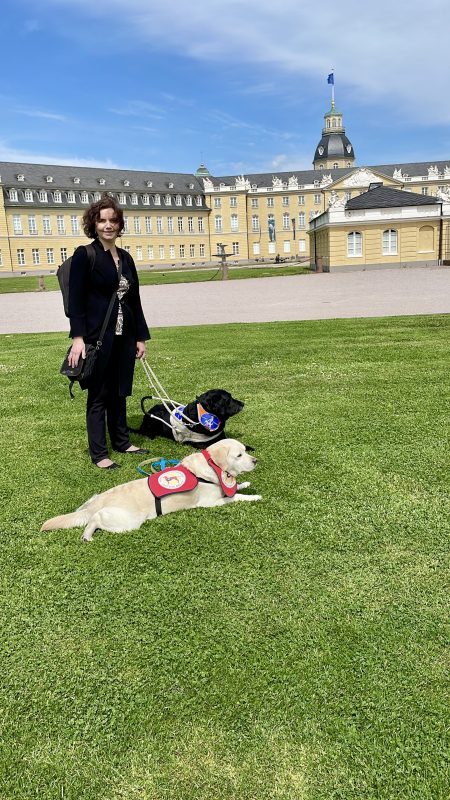
The “Assistance Dog Welcome” campaign was made possible by funding from the Federal Ministry of Labour and Social Affairs (BMAS) and the Aktion Mensch.
